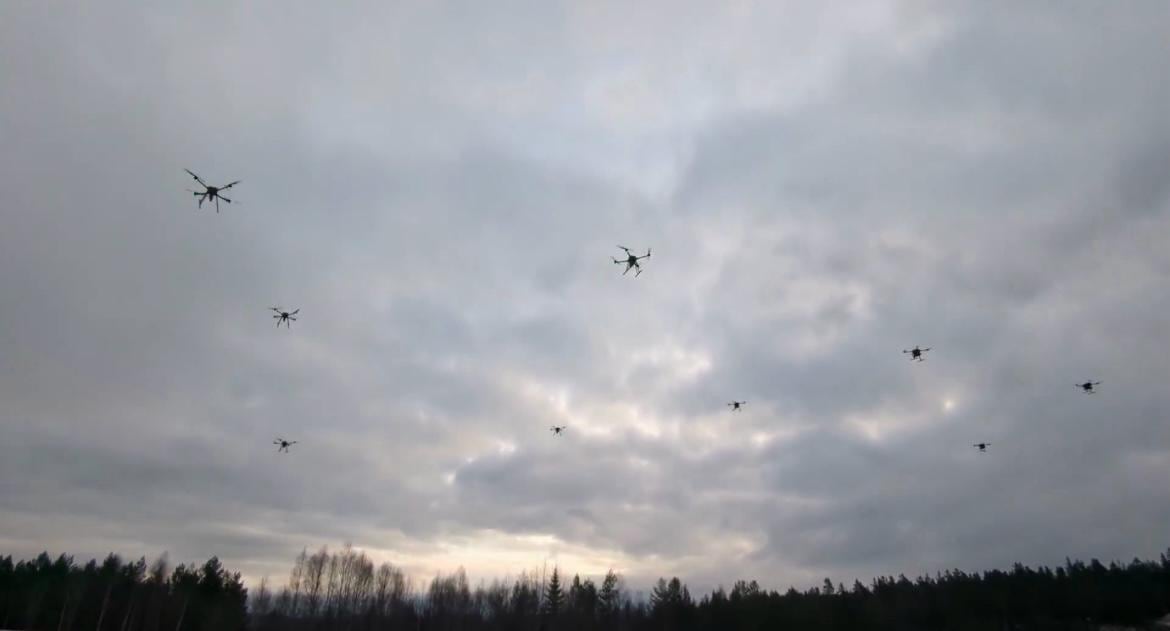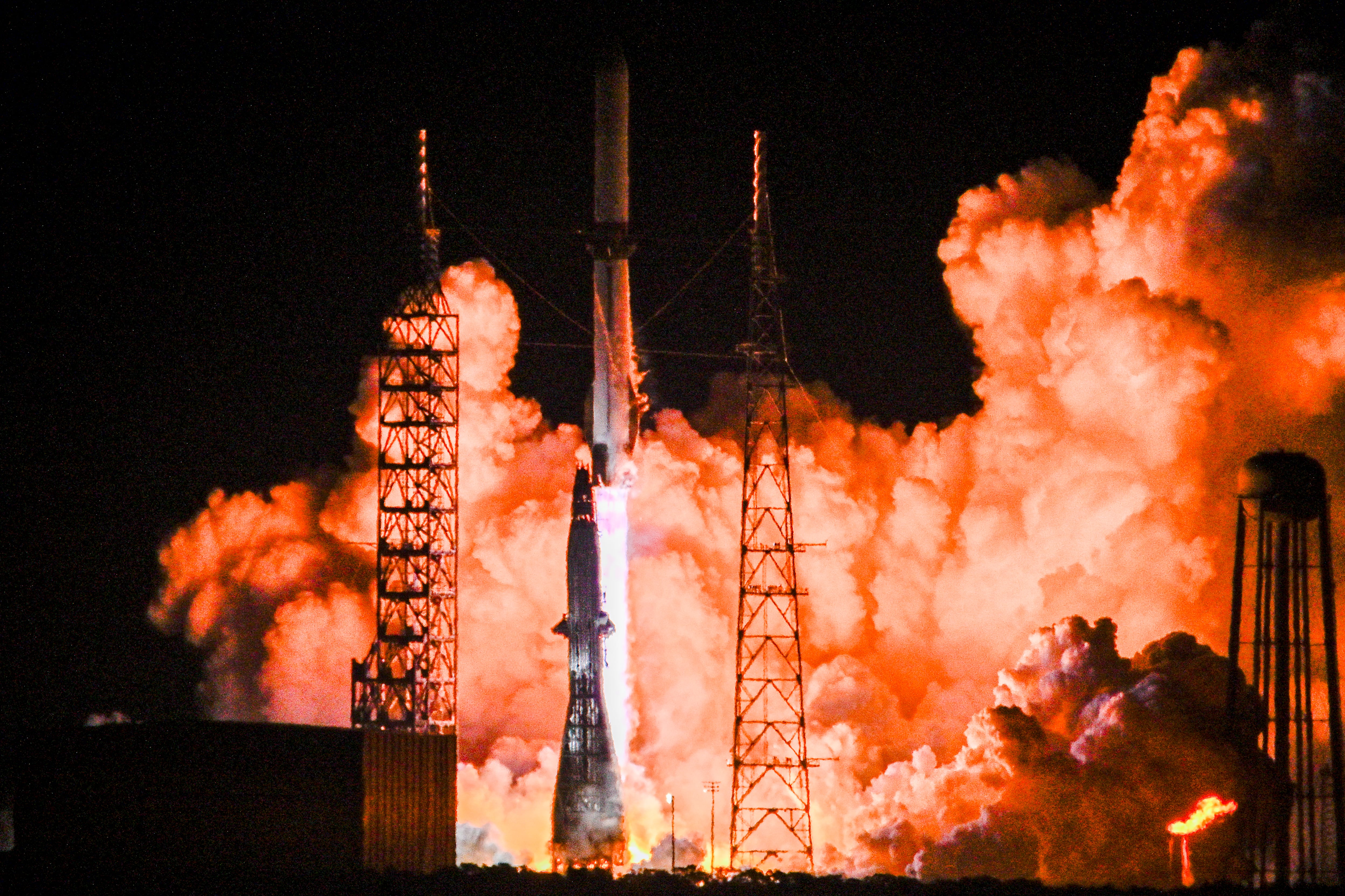WASHINGTON ― Defense Secretary Lloyd Austin became the latest U.S. official to back Poland’s preliminary conclusion that a fatal missile strike in Poland did not appear to be intentional and was probably launched by air defenses in neighboring Ukraine.
“We have full confidence in the Polish government’s investigation of this explosion. And they’ve been conducting that investigation in a professional and deliberate manner,” Austin told reporters Wednesday, echoing a statement from the White House.
“We’re still gathering information but we have seen nothing that contradicts [Polish] President [Andrzej] Duda’s preliminary assessment that this explosion was most likely the result of a Ukrainian air defense missile that unfortunately landed in Poland. And whatever the final conclusions may be, the world knows that Russia bears ultimate responsibility for this incident,” Austin said.
Also speaking with reporters after a routine virtual meeting of nearly 50 defense chiefs to discuss Russia’s invasion, chairman of the Joint Chiefs of Staff, Gen. Mark Milley, said that U.S. experts in Poland are assisting with its investigation and that “our information supports” Poland’s findings.
Austin’s comments came as NATO Secretary-General Jens Stoltenberg, at a meeting of the 30-nation military alliance in Brussels, also supported the preliminary Polish findings. Earlier, Duda said: “There is nothing, absolutely nothing, to suggest that it was an intentional attack on Poland.”
The initial assessments of Tuesday’s deadly landing of the Soviet-era missile appeared to dial back the likelihood of the strike triggering another major escalation in the nearly nine-month-old Russian invasion of Ukraine. If Russia had deliberately targeted Poland, that could have risked drawing NATO into the conflict.
Ukrainian President Volodymyr Zelenskyy disputed the preliminary findings and demanded evidence, saying Ukrainian officials should take part in the probe. He told reporters he had “no doubts” about a report he said he had personally received from his top commanders “that it wasn’t our missile or our missile strike.”
Amid Russia’s missile and drone salvos against Ukraine’s infrastructure, including power stations, the Pentagon-led Ukraine Contact Group has pushed to bolster Ukraine’s air defense systems. On Tuesday, Russia launched its biggest wave of missile attacks on Ukrainian cities in more than a month.
Milley said air defense capabilities will be “critical” for Ukraine’s success and that the country needs an integrated air and missile defense system to repel Russian aerial attacks.
Russia’s launch of between 60 and 100 missiles “was likely the largest wave of missiles that we’ve seen since the beginning of the war,” Milley said after the Pentagon hosted the seventh meeting of the group.
Milley accused Russia again of war crimes for its strikes on civilian sites, saying a quarter of Ukrainian civilians are without power, according to the Pentagon’s assessment.
Austin said that NASAMS air defense systems the U.S. donated to Ukraine were operational and have had a 100% success rate at intercepting Russian missiles.
“I’m pleased to be able to say that the nation’s air defense systems that we’ve sent to Ukraine are now operational and their performance so far has been very impressive,” Austin said.
Austin highlighted pledges from Sweden for nearly $500 million in air defense systems and other equipment, Germany’s donations of air defense systems, artillery and ammunition ― and artillery and ammunition from Greece and Poland.
The U.K. has pledged to train another 19,000 Ukrainian troops, as Poland and Germany have supported the larger U.S.-led training mission in Europe.
A $400 million U.S. aid package announced Nov. 10 included four highly mobile Avenger air defense systems and Stinger missiles. It also included Hawk mid-range, surface-to-air guided missiles, set to be refurbished using Ukraine Security Assistance Initiative funding and paired with Hawk launchers provided by Spain ― one of seven countries donating air defense systems, according to Austin.
Zelenskyy on Tuesday reportedly said that out of dozens of launches against his country, Russian attacks hit only 10 targets and that 70 missiles and 10 attack drones had been downed.
The Biden administration on Tuesday asked Congress for another $38 billion in Ukraine aid. Of that, $21.7 billion would be for equipment for Ukraine, to replenish Defense Department stockpiles and continue military and intelligence support.
The White House is also asking Congress to authorize $7 billion in presidential drawdown authority for Kyiv – which allows President Joe Biden to transfer weapons from existing U.S. stocks.
With reporting by The Associated Press.
Joe Gould was the senior Pentagon reporter for Defense News, covering the intersection of national security policy, politics and the defense industry. He had previously served as Congress reporter.








